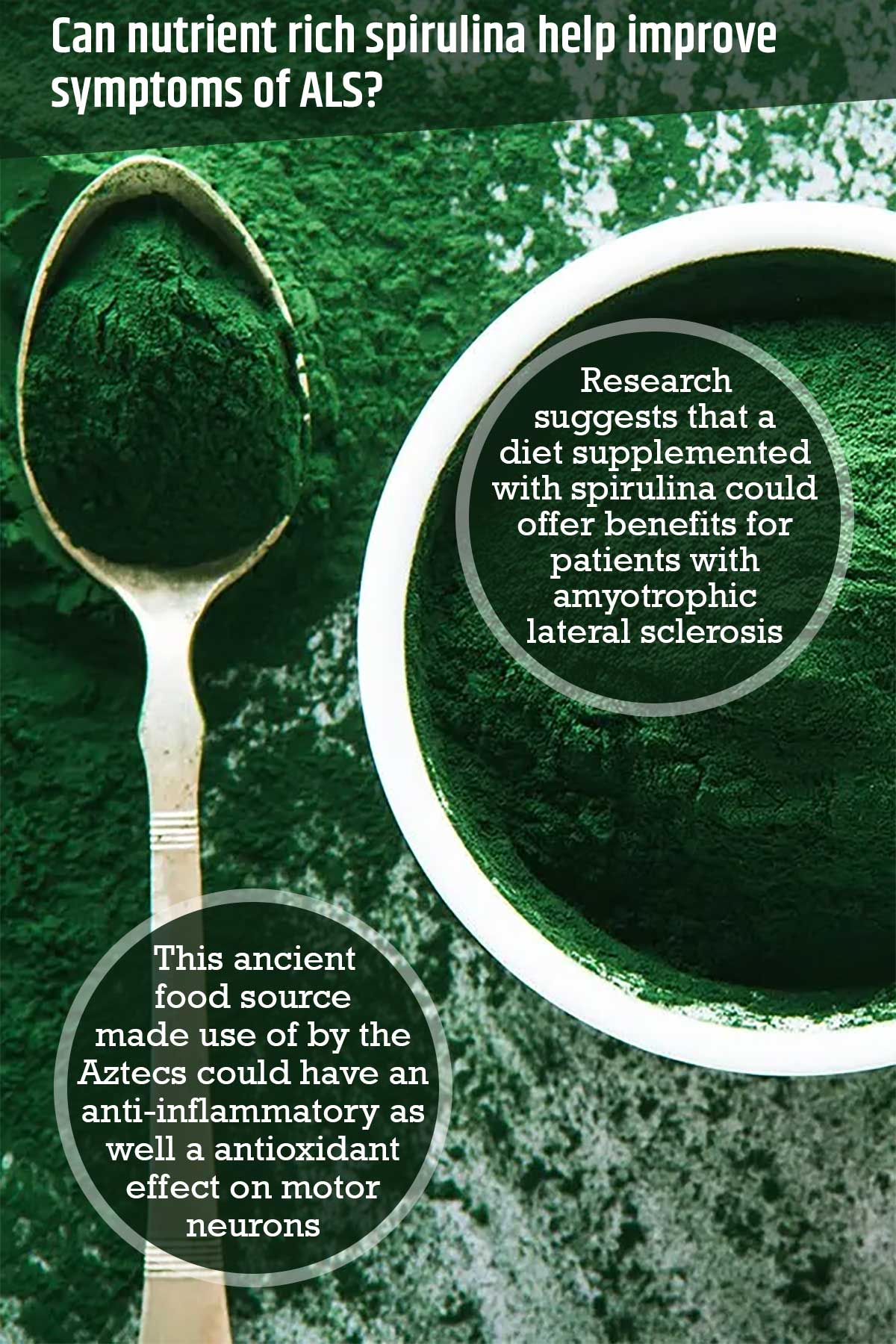Research suggests that a diet supplemented with spirulina could offer benefits for patients with amyotrophic lateral sclerosis (ALS).1✅ JOURNAL REFERENCE
DOI: 10.2174/1875043501003010036
Neuroscientists used a mouse model of ALS to demonstrate that supplementation with a blue – green algae known as spirulina, which is nutrient rich, provides neuroprotective support for dying motor neurons.
Disease progression and the onset of motor symptoms were delayed with supplementation of spirulina, reducing motor neuron death and inflammatory markers in a mouse model of ALS, also known as Lou Gehrig’s disease.
This ancient food source made use of by the Aztecs could have an anti-inflammatory as well a antioxidant effect on motor neurons.
Most available treatments for ALS, a degenerative motor neuron disease, provide symptom relief without changing the underlying disease.
The oxidative stress and ALS association has however been confirmed in a previous study, significant decreases in markers of inflammation and oxidative damage was demonstrated in rats fed spinach or spirulina supplemented diets.
In that study, only pre-symptomatic mice were fed the supplemented diet. More research showing the effect of the supplement on the life span of symptomatic ALS mice are required to confirm the effectiveness of the treatment.
The neuroprotective effectiveness of blueberry and spirulina compounds has been observed in past experiments in animal models of aging and stroke.
For the current study, the spirulina supplemented ALS mice were compared with mice that didn’t receive the spirulina supplementation over a 10 week period.
The spirulina supplemented mice had reduced motor neuron degeneration and inflammatory markers over the 10 week period.



